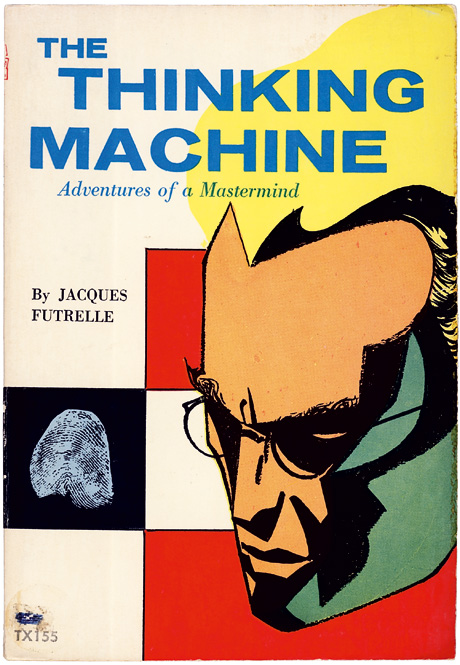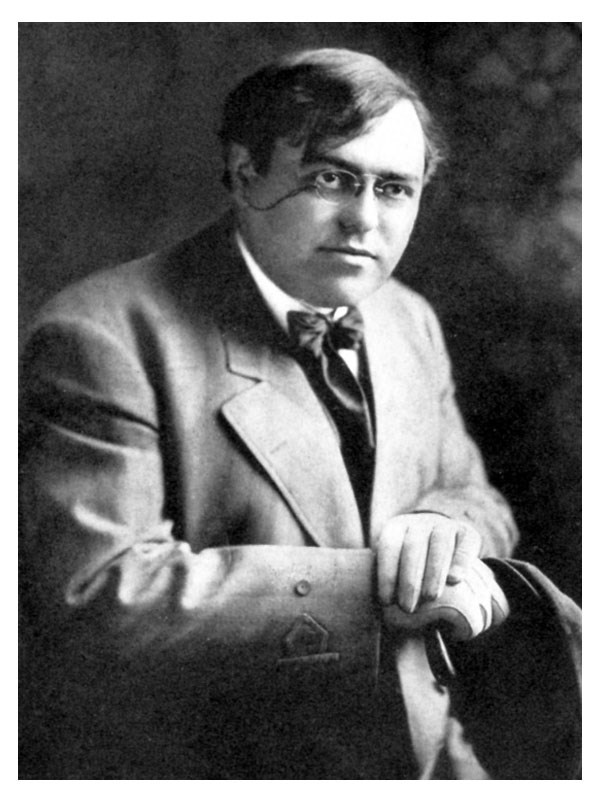By Jacques Futrelle.
Dodd, Mead & Co.
1907. 342 pages. $1.50
Collection: 7 stories.
Contents:
1. "The Problem of Cell 13"
2. "The Scarlet Thread"
3. "The Man Who Was Lost"
4. "The Great Auto Mystery"
5. "The Flaming Phantom"
6. "The Ralston Bank Burglary"
7. "The Mystery of a Studio"
Professor Augustus S. F. X. Van Dusen, Ph.D., LL.D., F.R.S., M.D., M.D.S. is a fictional character in a series of detective short stories and two novels by Jacques Futrelle. Some of the short stories were originally published in The Saturday Evening Post and the Boston American. — WikipediaMichael Grost, one of our contemporaries, has written:
Jacques Futrelle's tales of the Thinking Machine are some of the best detective stories even written. The Thinking Machine, a professor who received his nickname from the press for his intellectual acuity, appeared in a series of around 50 stories, from 1905 to Futrelle's death on the Titanic in 1912. Even the less successful Thinking Machine tales have features which make them enjoyable and worth reading. — GAD WikiBut how did Futrelle's contemporaries feel about the Thinking Machine? One critic from a century ago agrees with Grost (as do we). Excerpts from his review:
"The Thinking Machine" is a name given to a certain Professor van Dusen, who is the incarnation of unemotional science. His logic is without a flaw; his mental processes are infallible. Sherlock Holmes was partly a man of action; but Professor van Dusen is wholly a man of thought. In this respect he resembles Mycroft Holmes, but without the amiable eccentricities of that cogitator. The problems that are given him to solve are often, on the face of them, so impossible as to make the reader absolutely certain that they cannot in any way be mastered.
. . . This story ["The Problem of Cell 13"] is perhaps the most absorbingly interesting and puzzling in the book; but the others are all extremely clever. If, after the reading is over, one still ranks them below the adventures of Sherlock Holmes, it is because the latter have greater realism and accord more closely with the conditions of actual life. Holmes sometimes makes mistakes, and this fact renders him more real as a human being. The incidents which befall him are also far more usual, and for that very reason are the more convincing. But The Thinking Machine is a book that will be read with avidity for its great cleverness; and other stories by the same author are certain to receive an appreciative welcome. — Rafford Pyke, "Ten Books of the Month," THE BOOKMAN (June 1907)Another critic of the time, however, wasn't so enthusiastic:
Somewhat similar in character [to Martin Hewitt, Investigator] but much cruder is The Thinking Machine, by Jaques [sic] Futrelle. The author's ingenuity is great, but the element of probability is not always maintained. — "Comment on Current Books: Among the Novels," THE OUTLOOK (April 6, 1907; page 813 top left)Resources:
- "The Mystery of a Studio" is online HERE, "The Phantom Motor" is HERE, and "The Problem of Cell 13" is HERE.
Category: Detective fiction




No comments:
Post a Comment